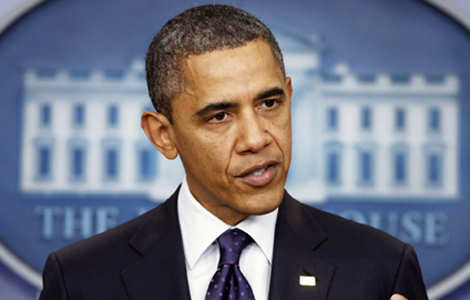New Internet protocol to undergo test
Updated: 2011-12-24 11:22
By Gao Yuan and Chen Limin (China Daily)
|
|||||||||||
BEIJING - China is likely to test a new Internet protocol in the next few years in an attempt to further develop the country's Internet, senior officials from the State Council said on Friday.
The country will put the Internet Protocol version 6 (IPv6)-based network into small-scale commercial pilot use by the end of 2013, and deploy and commercialize the IPv6-based network on a large scale between 2014 and 2015, according to a statement released after an executive meeting of the State Council that was presided over by Premier Wen Jiabao.
"The development of IPv6 is one of the most important tasks for China's Internet industry during the 12th Five-Year Plan period, from 2011 to 2015," said Hu Qiheng, director-general of the Internet Society of China.
Analysts believe the transition from the latest Internet protocol, IPv4, to IPv6 is irreversible. This year, the pool of Internet addresses in IPv4 has come close to being tapped out, and the supply of domain names has run short.
Compared with IPv4, IPv6 will offer more IP addresses and, for that reason, more devices will be able to connect directly to the Internet, said Microsoft Corp, one of the main technical supporters of IPv6.
By 2010, China had about 278 million IPv4 addresses, according to data from the China Internet Network Information Center. That was far fewer than the 450 million Internet users who live in the country.
"This is the first time the government has issued a schedule for IPv6 development, and it will benefit the entire industry," said Chen Qi, deputy general manager of BII Group Holding Ltd, an IPv6 service provider based in Beijing.
IPv6 will enable telecommunication operators to allocate more IP addresses to their clients and will probably bring more users to those operators, Chen said.
Five Chinese telecommunications carriers, including China Telecom Corp and China Mobile Ltd, had established IPv6 networks as early as 2006, the New York Times reported.
China will need "far too many" IPv6 addresses in the coming years, according to Paul Wilson, director general of Asia Pacific Network Information Center, an organization responsible for allocating IP addresses.
The profits made by Chinese manufacturers of telecommunications equipment, such as Huawei Technologies Co Ltd and ZTE Corporation, will also increase, a result partly of a rise in the demand for routers and Internet switches, Chen said.
China launched the construction of the next-generation Internet in 2003, featuring the IPv6 network as a key technology. Even though IPv6 has not been put into commercial use, Chinese universities are among the first institutions to connect to IPv6.
Hot Topics
HIV/AIDS, Egypt protest, Thanksgiving, climate change, global economic recovery, home prices, high-speed railways, school bus safety, Libya situation, Weekly photos
Editor's Picks

|

|

|

|

|

|







